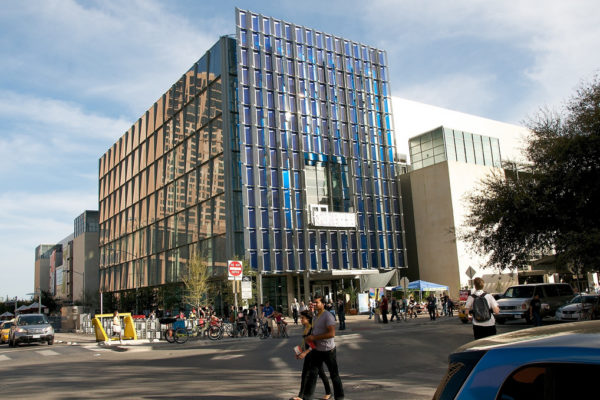AUSTIN, Texas — In December 2017, Austin’s City Council unanimously authorized The University of Texas at Austin’s Center for Sustainable Development to develop and compare scenarios for the downtown Austin Convention Center area. Faculty and research staff members from the School of Architecture and the McCombs School of Business examined options for a more inclusive and vibrant downtown district. Their report is available today.
Two broad themes emerge from the investigation:
Placemaking Matters:
- The Convention Center area connects four rapidly developing corridors in one of the fastest growing cities in the United States.
- Three scales of urban design must be considered: the immediate area around the Convention Center, the larger southeast quadrant of downtown, and connectivity with other parts of the city.
- Projects need to contribute to multiple civic goals and support residents and visitors alike.
The Economic Ecosystem Matters:
- The leisure and hospitality industry contributes 15 percent of Austin’s total economy — up from 11 percent in 2000 and more than the state average of 13 percent.
- Convention centers make important contributions to this sector.
- Hotel taxes make convention centers possible and support other community goals.
“Frameworks for Placemaking: Alternative Futures for the Austin Convention District” draws lessons from other convention center districts across the country and combines considerations of urban design, needs of event facilities, financial factors and other planned projects for the area. This information will help elected officials and city staffers determine the best path forward to meet Austin’s goals.
A public presentation will be made to City Council at 9 a.m. Tuesday, April 2, at the Austin Central Library, 710 W. Cesar Chavez St.




